We may not want to believe it, but sharing nude or sexually suggestive photos or videos is a very common part of growing up for some young people. Here we look at why young people share nudes, what to do if these images are shared without their consent and what the law says about sharing sexual content.
Why do young people share nudes?
Sharing nudes means sending sexually suggestive images or photos to another person. It’s also referred to as ‘sexting’, although this can also be used to mean sharing sexual messages without photos or videos. Nudes can also be referred to as ‘intimate images’. Images and videos can be shared online via phones, tablets or computers through apps, games, websites and livestreams. They can also be shared using offline methods like Bluetooth or Airdrop.
There are lots of reasons why young people share nudes, for example:
- to fit in, because ‘everyone else is doing it’
- to gain acceptance, or feel good about themselves
- because they feel confident about their bodies and want to show them off
- to flirt, or get someone’s attention
- because they trust the person they’re sending it to
- as part of a relationship milestone
- as a dare or challenge
- because they’ve been pressured, bullied or manipulated.
What are the dangers of sharing nudes?
Even if your child trusts the person they send the image or video to, once it’s been sent, it’s out of their control. It could be copied, sent to others, or even used to embarrass, shame, manipulate or blackmail them. Even images that are set to disappear after a certain amount of time can be saved as screenshots.
Is it illegal to share nudes?
It's important to tell your child that if they take nude or sexual photos or videos of themselves, it's illegal for those images or videos to be shown or shared more widely. The law says that it's illegal for anyone to take, have or share a nude image or video of anyone under 18. However, there may be an exception to this where each of the following apply:
- the young person in the image or video is at least 16,
- the person in the image or video and the person they sent the image to are in a romantic relationship,
- the person in the image consented to the image being taken or made and in their romantic partner’s possession, and
- the image was shared only with each other.
You can find out more about sex and the law on the CEOP website.
Talking to children about sharing nudes
It’s important to talk to your child and make sure they understand the dangers of sending naked or semi-naked pictures of themselves, and of sharing sexual images of others. They may think it’s funny or harmless, but it can have very unhappy consequences.
Our page on talking about online safety has more advice on how you can make chats about what they do online part of daily life, so you’re not sitting down to have a ‘big talk’ about it. Our page on talking to your child about consent has tips on helping your child work out what’s appropriate behaviour and what’s not.
If they tell you they’ve been asked for nude photos or videos, you could suggest they block the person asking. Childline has lots of advice for children and young people about coping with pressure to send nudes, blocking and reporting.
For more support, the NSPCC website has information on how to tackle the subject of sharing nudes with your children.
Talking to teens about sharing nudes
You and your teen may find it awkward and embarrassing to talk about sex, but it’s important to try to have these conversations. The more open you are about sex and intimacy, the safer they will be in their own relationships, and the more likely they’ll be to feel like they can come to you if they’re worried about something. Our page on talking to your teen about sex has lots of tips to help getting the conversation started and Internet Matters has information on how to tackle the subject of sharing nudes with your teen.
Remind your teen regularly that they can always talk to you about what they’re doing online and anything that’s bothering or upsetting them. Even if they don’t want to discuss it, you could let them know that if a nude image or video of them is ever shared online, they can use Childline’s Report Remove tool to report it themselves (see ‘What to do if a nude is shared without consent’ below). You could also suggest they have a look at the ‘So you got naked online’ guide from South West Grid for Learning (SWGfL).
If you find out your teen has been sending or receiving nudes, try not to get upset or angry. Ask them calmly to explain the situation, so you can understand the context in which the picture or video was taken and shared. This will help you to work out how to respond, for example, whether you need to contact their school or report the situation.
If they’ve shared the image or video of themselves voluntarily, they might have been happy to share it and trust the person they shared it with. But remind them that digital photos last forever and that they can be duplicated and shared with others at the click of a button. It’s also important to remember that the possession of indecent images of children under the age of 18 is a criminal offence (see ‘Is it illegal to share nudes?’ above).
What to do if a nude is shared without their consent
Having intimate or sexual images shared online without your consent is distressing for anyone. But for children and young people it can feel like the end of the world. If you find out this has happened to your child, you may feel a range of strong emotions, from shock and anger to frustration and helplessness. But try to stay calm so you can help and support them. Our page on wellbeing for parents has advice on looking after your mental health and dealing with stress that can help you stay calm and cope.
There are also lots of practical steps you can take:
- Children and young people can report nude images and videos of themselves online and get them removed through the Report Remove tool on the Childline website. The Internet Watch Foundation will then review the content and work to have it removed if it breaks the law.
- Children and young people can also use Take It Down, which is a tool from the National Center for Missing and Exploited children. This can be used to remove images and videos, or to stop images from being shared online.
- Possessing indecent images of children under the age of 18 is a criminal offence, so you can also report the situation to the police by calling 101. The Police Scotland website has more information on what happens when you make a call, and how to get in touch by text or via contact Scotland-BSL.
- If your child is being blackmailed over nudes (this is known as ‘sextortion’) we have more information to help here.
Our page on what to do if your child has a negative experience online has more information on reporting images and videos. You can also find helpful advice on dealing with the situation in this booklet from the Children’s Commissioner about online harassment.
Child sexual abuse and exploitation
If a child or young person is forced or persuaded into sexual activity (including non-contact activities like being manipulated into sending nude images or videos) this is child sexual abuse. Abuse involves serious crime and isn’t something that you need to deal with alone.
Finding out that your child has been sexually abused is a heart-breaking discovery for any parent. But there are specialist organisations that can give you one-to-one, expert advice on how you and your child can come to terms with what has happened. Our section on child sexual abuse has lots of information that can help you, and signposts to organisations offering advice and support.
What to do if your child has shared a nude of someone else
If your child has shared a nude image or video of someone else without their consent, it’s important to talk to them about why they shouldn’t do this and make sure they remove or delete the image straightaway. Not only is it disrespectful and damaging for the person in the image, but it’s also against the law. Our page on harmful sexual behaviour has more advice on how to talk to your teen if you’re concerned about their behaviour.
Getting help and support
- Children and young people can get help and advice from Childline by phone or email.
- Under 25s can get advice and support from The Mix.
- If you’re worried about your child or need advice, you can call the NSPCC helpline or Upstream.
 Activities & Play
Activities & Play Behaviour
Behaviour Childcare
Childcare Development & Growing Up
Development & Growing Up Family, Friends & Relationships
Family, Friends & Relationships Feeding Your Baby
Feeding Your Baby Food & Eating
Food & Eating Health & Safety
Health & Safety Mental Health & Wellbeing
Mental Health & Wellbeing Money & Work
Money & Work Online Behaviour & Safety
Online Behaviour & Safety Pregnancy & First Days
Pregnancy & First Days School & Education
School & Education Sleep
Sleep

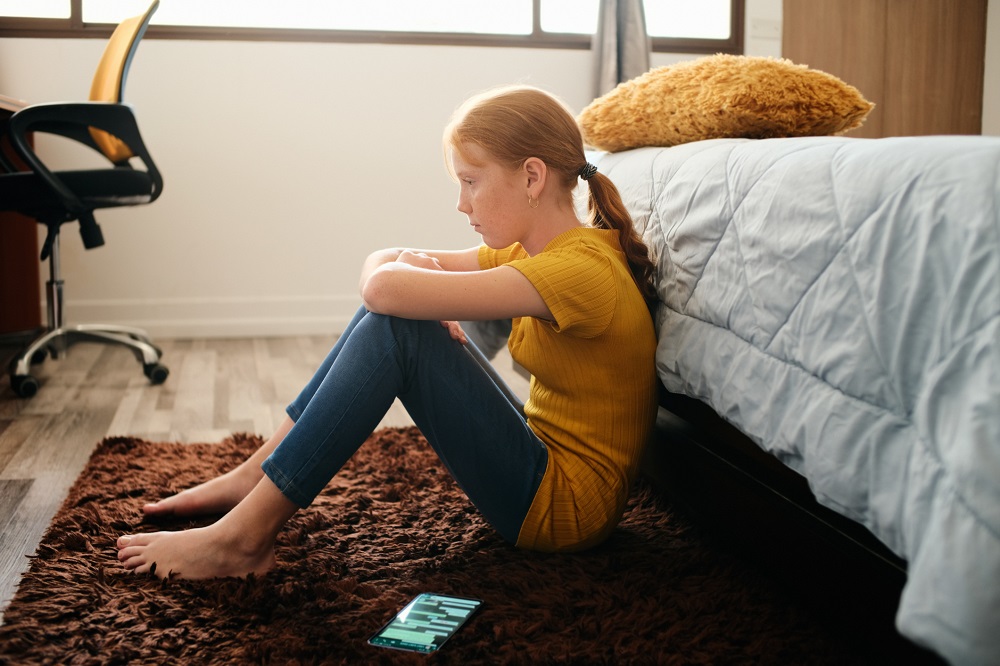
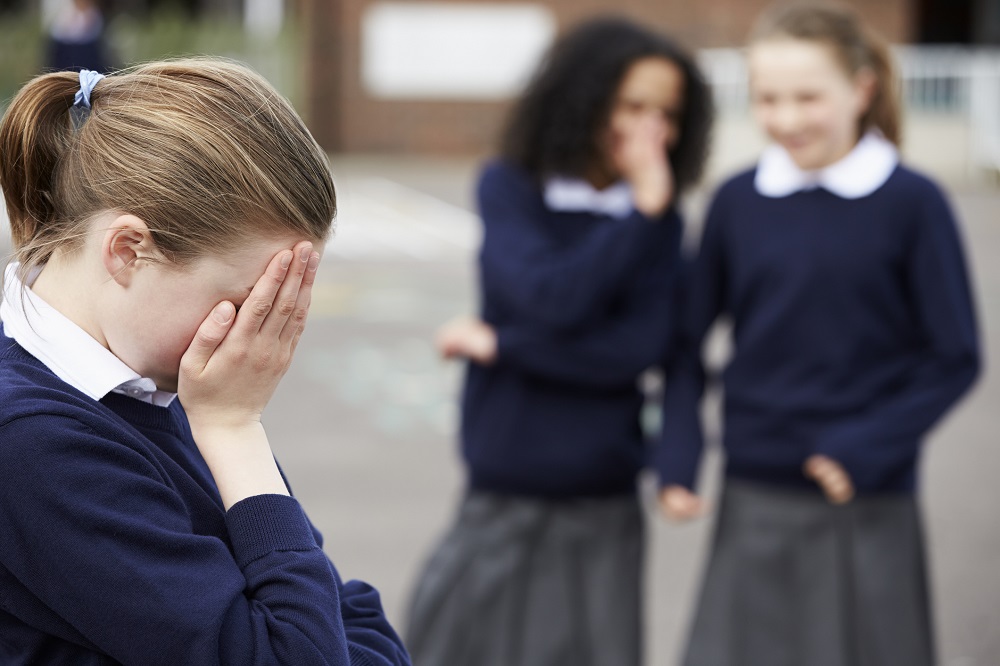
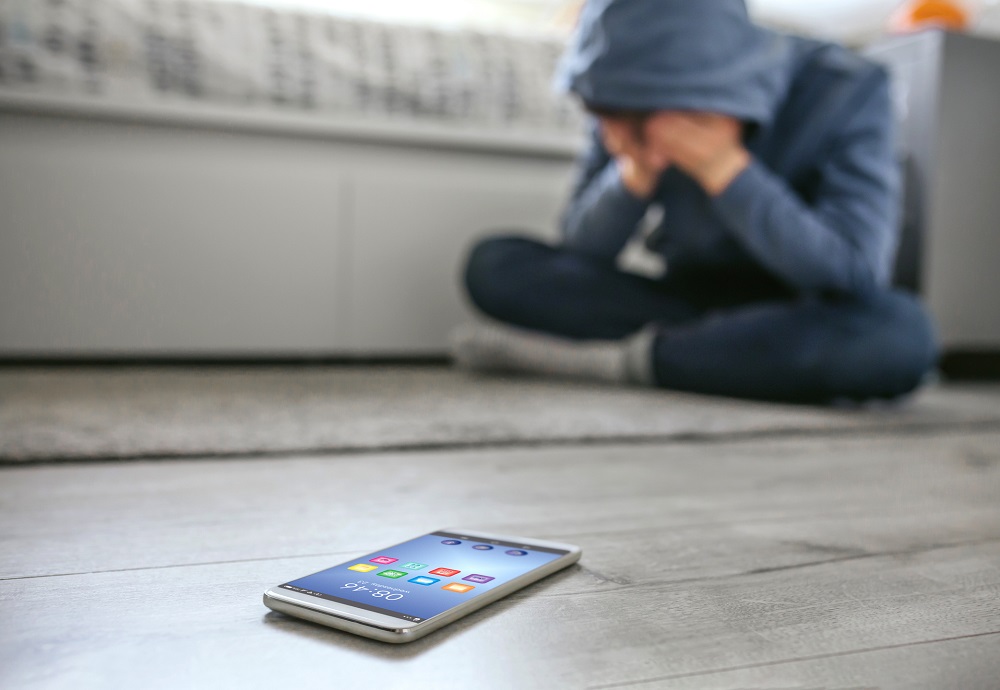
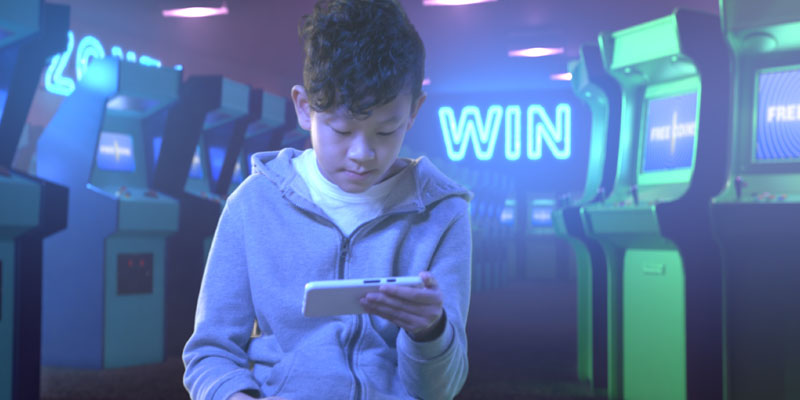
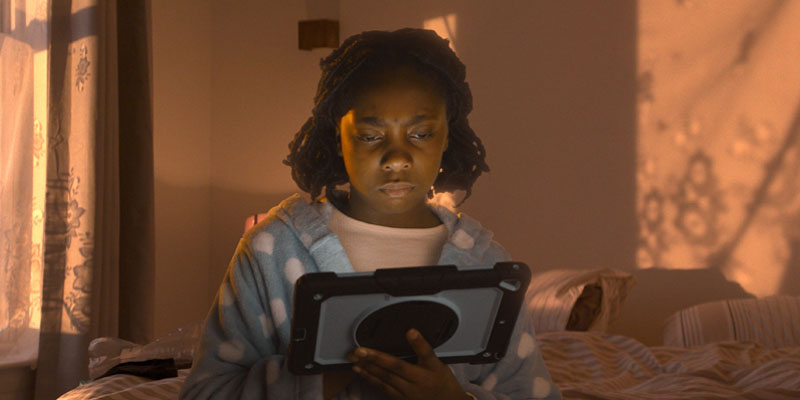

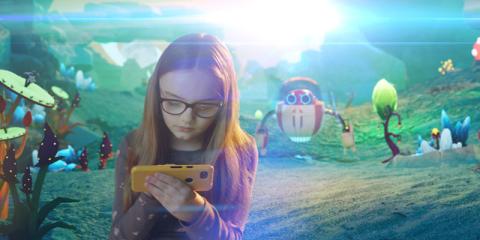
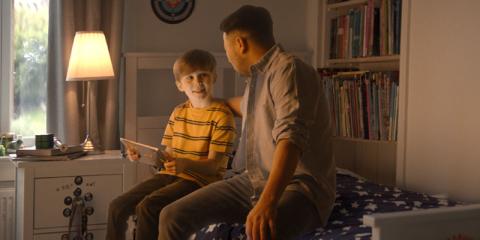
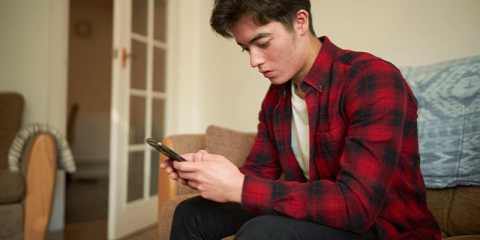
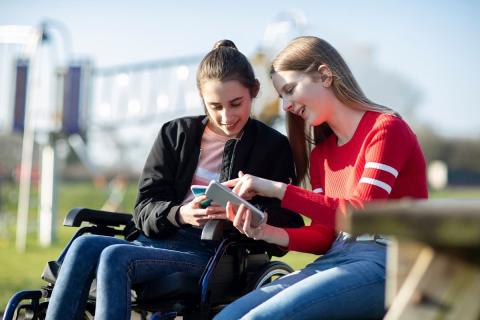
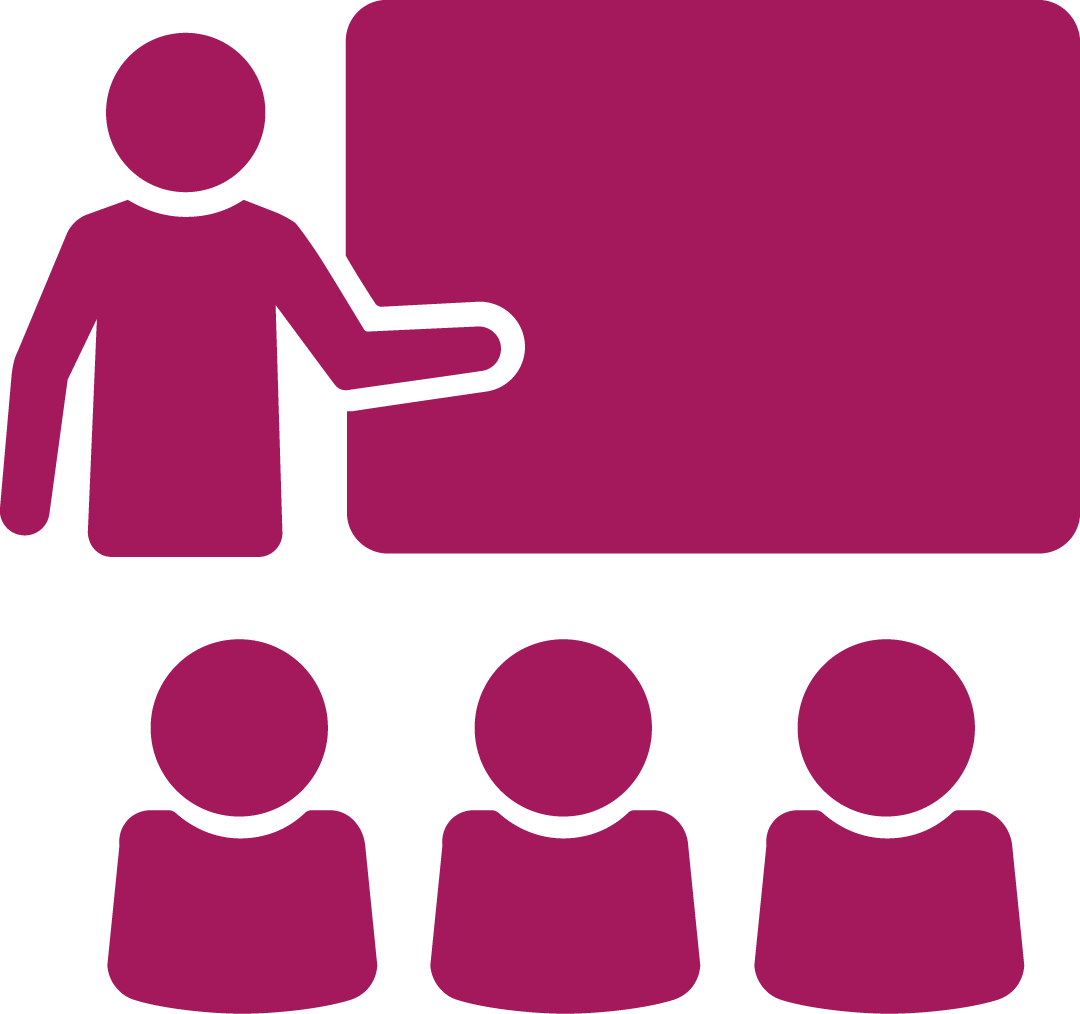 School & Education
School & Education
 Mental Health & Wellbeing
Mental Health & Wellbeing